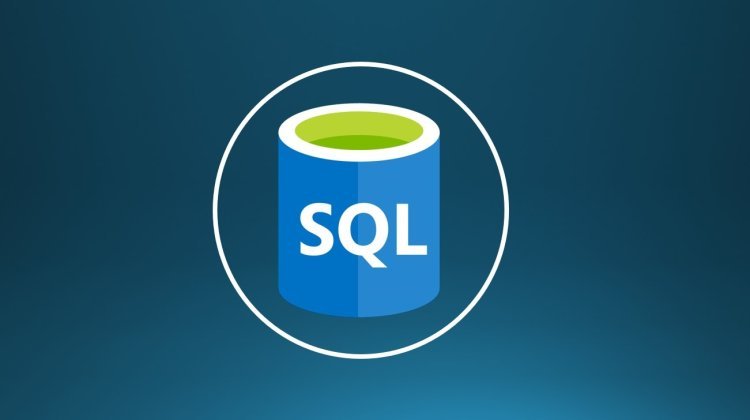SQL Classes in Mumbai: Boost Your Database Skills with the Best Courses
SQL (Structured Query Language) has become an essential skill for anyone working in data management, analysis, and software development. Whether you're a beginner looking to break into the world of databases or an experienced professional seeking to refine your skills, enrolling in SQL classes can significantly boost your career.

SQL (Structured Query Language) has become an essential skill for anyone working in data management, analysis, and software development. Whether you're a beginner looking to break into the world of databases or an experienced professional seeking to refine your skills, enrolling in SQL classes can significantly boost your career. If you're considering joining SQL classes in Mumbai, one of the most common questions you might have is: What is the average duration of SQL classes in Mumbai?
In this article, we’ll explore the typical time frame for SQL courses, factors that affect the duration, and how you can choose a course that suits your schedule.
Factors Influencing the Duration of SQL Classes
The duration of SQL classes in Mumbai can vary widely based on several factors, including:
- Skill Level: Courses designed for beginners may take longer compared to advanced or specialized SQL courses that assume some prior knowledge of databases.
- Course Type: Whether the course is a crash course, full-time training, or part-time will significantly impact the length.
- Mode of Delivery: Online courses, self-paced programs, and in-person classes have different time frames. Self-paced courses can offer flexibility, while classroom sessions tend to have fixed schedules.
- Curriculum Depth: Courses that cover basic SQL commands may be shorter, while those offering advanced topics like database management, optimization, and data manipulation could take more time.
Typical Duration of SQL Classes in Mumbai
Short-Term Courses: 1 to 2 Weeks
If you're looking to get a quick introduction to SQL, there are several short-term crash courses available in Mumbai. These courses typically last between one and two weeks and are designed for beginners who want to grasp the basics of SQL in a short amount of time. Such programs usually focus on fundamental SQL queries, commands, and database operations.
- Best for: Beginners looking for a fast-track introduction to SQL.
- Topics Covered: Basic SQL queries, SELECT, INSERT, UPDATE, DELETE commands, and simple database management.
Intermediate Courses: 1 to 2 Months
Intermediate SQL Courses in mumbai generally last between one to two months. These courses dive deeper into more complex SQL functions, including joins, subqueries, and advanced data manipulation. If you want to build on your basic knowledge and work with larger datasets, this duration is ideal.
- Best for: Those with a basic understanding of SQL who want to learn more complex querying techniques.
- Topics Covered: Joins, subqueries, data manipulation, performance tuning, and database design.
Advanced Courses: 2 to 4 Months
For individuals who want a comprehensive understanding of SQL and its application in database management systems, advanced courses typically run for two to four months. These classes cover everything from complex query design to database optimization, performance tuning, and advanced reporting techniques.
- Best for: Professionals in data analysis, database administration, or software development roles.
- Topics Covered: Query optimization, database security, complex joins, functions, stored procedures, and database design principles.
Full-Time Professional Courses: 3 to 6 Months
Full-time SQL courses, often combined with database management and other programming languages, can last between three and six months. These classes are more in-depth and are designed to prepare students for a career in database administration, business intelligence, or data analytics. Such programs may also offer project-based learning and internship opportunities.
- Best for: Individuals seeking career transitions or deep knowledge in SQL and database management.
- Topics Covered: Complete database lifecycle management, SQL optimization, handling large datasets, data security, and integration with other programming languages.
Self-Paced Online Courses
Many institutes and platforms in Mumbai offer online SQL courses that are self-paced, allowing students to complete the course at their own speed. The duration of such courses can vary significantly depending on how much time a student dedicates to learning. While some students complete these courses in a few weeks, others may take several months to finish.
- Best for: Working professionals or students with tight schedules.
- Topics Covered: Varies, from basic queries to advanced SQL techniques, depending on the course structure.
How to Choose the Right SQL Course in Mumbai?
When selecting the best SQL class in Mumbai, it’s important to consider the following factors:
- Your Current Skill Level: Beginners should opt for foundational courses, while professionals might benefit from advanced SQL training.
- Schedule and Flexibility: Choose a course that fits your schedule. If you're working, weekend or evening classes might be ideal. Self-paced online courses can offer even more flexibility.
- Course Content: Ensure the curriculum aligns with your learning objectives. If you're looking for a specific focus, like data analysis or database management, choose a course that covers these topics in-depth.
- Certification: A recognized certification can boost your resume. Check if the institute provides certification upon course completion.
Conclusion
The average duration of SQL classes in Mumbai can vary from a few weeks to several months, depending on the level of depth and flexibility you require. From short-term crash courses for beginners to comprehensive full-time programs for professionals, there are a wide range of options available to fit your learning pace and career goals.
By choosing the right course based on your needs, you'll be well on your way to mastering SQL and enhancing your data skills, whether for personal development or professional growth.
What's Your Reaction?
















